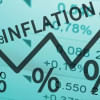Inflation and immorality rising hand-in-hand?

The latest key food item to stray further out of the reach of citizens is sugar. Reportedly, the price of sugar has jumped to Tk 100-110 per kg, up from Tk 90-95 per kg a couple of weeks ago in the retail markets. This is in stark contrast to the new rates set by the government, according to which loose sugar should cost Tk 90 per kg and packaged sugar should be sold at Tk 95 per kg in the retail market. Supply of sugar has also decreased as importers face many complications when opening letters of credit (LC) with banks. The overall reason being cited behind this steep rise in sugar prices is higher manufacturing costs. Production of sugar has been facing disruption recently due to an insufficient supply of gas to manufacturing facilities.
But sugar prices were already too cornered given the hiked price of the US dollar against the Bangladeshi taka, which made importing crude sugar much more expensive. This was not helped by the globally increased energy prices. To put the crisis further into perspective, of Bangladesh's 25 lakh tonnes annual demand for sugar, at least 24 lakh tonnes are imported as domestic mills are only able to produce about one lakh tonnes. But given that the price of sugar stands at USD .40 per kg globally, as per World Bank data from October 4, why exactly is there this big of a discrepancy between that and Bangladeshi prices?
What we need now is rigorous and dedicated market inventions from the government, perhaps beyond just fining traders who are overpricing goods or tampering with the quantity they sell to consumers. This goes for the markets of all essential food items.
Yes, manufacturers and traders are facing a range of problems when it comes to importing and producing sugar at the least costs and on time. But recent drives by the Directorate of National Consumers Right Protection have presented an unsavoury side of the story as well. While the directorate's report reveals that there is no shortage of unrefined sugar, mill owners, dealers and wholesalers have found a way of making undue profits as they sell the item at more than the price fixed by the government as the price is not mentioned in supply order receipts. Many retailers were also found to be tampering with the prices printed on packaged sugar, or even unpacking it to sell loose at higher prices.
There is no denying that factors such as the gas crisis and complication regarding the opening of LCs with banks are contributing to higher sugar prices and must be dealt with properly. But the immorality of producers and sellers must be checked with equal urgency if we are to avoid further erosion of consumers' already-weak purchasing power.
What we need now is rigorous and dedicated market inventions from the government, perhaps beyond just fining traders who are overpricing goods or tampering with the quantity they sell to consumers. This goes for the markets of all essential food items. It is crucial that the government work hard to reduce the effects of the ongoing global energy crisis on manufacturers, and ensure that imports of food are made easier on all counts. But the immorality of some food sellers during this time of increasing food inflation is especially hard to digest, and must not be tolerated.


 For all latest news, follow The Daily Star's Google News channel.
For all latest news, follow The Daily Star's Google News channel. 






Comments